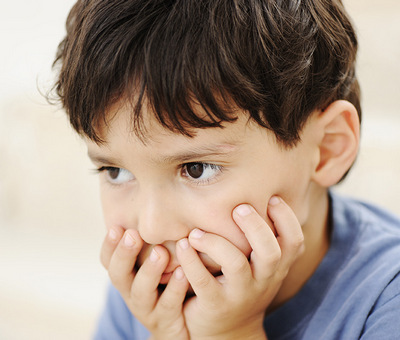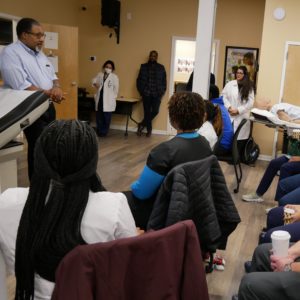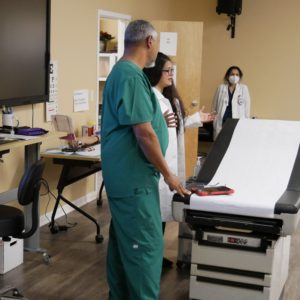This article continues our series of in-house academic articles prepared and written by AUIS faculty. The purpose of this series is to help bring knowledge and awareness on relevant medical matters to AUIS students.
ADHD: Lifelong Impact
Ievgen Chebotarov, MD, PhD
Attention Deficit Hyperactivity Disorder (ADHD) is a polyetiological mental disorder which usually manifests in childhood. It is classically diagnosed using a triad of symptoms – inattention, hyperactivity and impulsivity. The course of this disorder is chronic, and its manifestations influence the level of social adaptive behavior throughout life. Recent scientific research of ADHD has revealed a biological basis of this disease such as different variants of genetic polymorphism, morphofunctional features of the brain and polymorphism of the neurotransmission of the thalamo-cortical tract and basal ganglia.
In early childhood, ADHD strongly correlates with psychological trauma, and at school age patients show poor academic performance, antisocial behavior, early alcohol and drug abuse.In adults, ADHD is associated with professional and family problems, dependent forms of behavior and domestic offenses.
According to statistics, about 5% of all children in the world suffer from ADHD. In 30-70% of children clinical manifestations persist after they become adults. Some people who were not diagnosed with ADHD at a young age, can show attention disorders and impulsivity. Majority of adults do not recognize ADHD symptoms in themselves and might be unaware why they cannot achieve their goals.
ADHD in adults may have different clinical manifestations than those in children. One of the most prominent signs is inability to fit the schedules and deadlines – patients are disorganized and unable to plan their time. Adults suffering from ADHD often have problem with self-control, which is usually associated with difficulties in anger management and results in episodes of impulsive behavior. Some patients can be fixed on unimportant details and show hyperattention.
How effective are medications in the treatment of ADHD? Psychostimulants and antiepileptic drugs are widely used in a management of this disorder in adult patients. In the child psychiatry norepinephrine reuptake inhibitors and -agonists are more preferred. Along with pharmacological treatment with psychostimulants, adults with ADHD need special psychological support (counseling). Psychological counseling should be focused on formation of positive behaviors, support of positive family relationships, and improvement of social skills.
The most rational way of management of children with ADHD is to conduct psychosocial trainings for their parents and teachers. That can improve the effectiveness of child’s behavior and control. If you or a loved one is struggling and think ADHD may play a role, please reach out to an AUIS doctor for more information.



